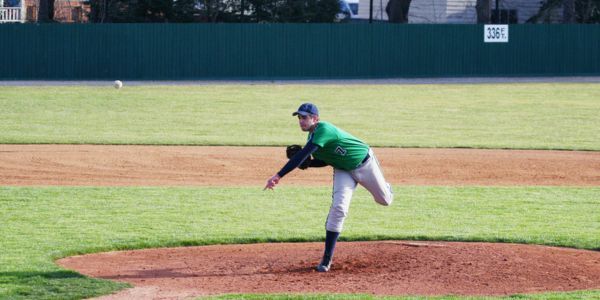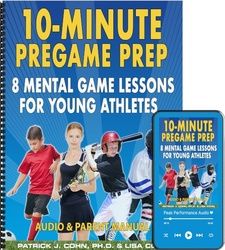How to Constantly be Improving Your Game
Many athletes reach a point where they believe they have maxed their potential or can no longer improve. Some set career goals, and when they accomplish their objective, they become satisfied and lose their motivation to achieve more. Athletes need to be more hungry
For instance, maybe your young athletes set a goal of playing in college. Throughout high school, they consistently pushed themselves in practice. In the summer, they attended clinics to sharpen their skills.
During practices, they were motivated to refine their mechanics to maximize performance. During the offseason, they ran regularly to improve their conditioning and started a weight training regimen to increase their physical strength.
During their senior year in high school, college coaches expressed an interest in having them join their team.
Eventually, their work paid off during college tryouts, and their dream became a reality; they made the team!
However, after they achieved their goal, their performance leveled off. Instead of resetting their goal or furthering their game in college, they were just happy to be there.
A “satisfied” mindset often leads to regrets after an athletic career ends. Many athletes agonize over what could have been during their post-athletic careers. They wonder, “What could I have achieved if I had continued to work on my game?”
Difference Between Satisfied and “Hungry”
The opposite of a “satisfied” mindset is a “hungry” mindset. In a “hungry” mindset, sports kids continually want more.
They want to achieve greater heights, contribute more to their team and maximize their athletic potential.
Athletes with a “hungry” mindset ask themselves, “What can I specifically do to further my game?”
Without a clear guiding principle, kids’ progress can stagnate, leading to a plateau in performance. It’s crucial to have a guiding principle that keeps pushing kids forward, even when they accomplish a long-term goal set early in their career.
For example, Philadelphia 76ers guard Tyrese Maxey averaged 25.9 points and 6.2 assists during the 2023-24 NBA regular season.
Maxey, now in his fourth season in the league, was named an All-Star for the first time and earned the Most Improved Player award for the 2023-24 season.
Maxey’s motto motivates him to strive to improve his game daily.
“My goal is to get one percent better every single day,” Maxedy said. Maxey has a “hungry” mindset, one he has cultivated throughout his athletic career.
“When I got drafted I said I’d work extremely hard and I’d make sure it’s not a regret,” Maxey said.
“I really meant those things. I wanna keep building and keep getting better every single day…
It’s something that I preach. Something that I live by and it’s not fake or something I started last year. I’ve been saying that for a very long time. My pop’s been on me about it. He always said proper preparation prevents poor performance so, for me, it does really mean a lot.”
To consistently improve, kids need motivation and a driven mindset. Taking an active role in fueling their motivation keeps athletes’ drive alive for long-term athletic success.
Help sports kids create a motto, a guiding principle, that motivates them to push themselves mentally and physically, such as “one percent better every day.”
Asks kids to write the motto on their equipment or an index card that they can place in their equipment bag. When training is monotonous or boring, they should remind themselves of the motto to keep their motivation high, and help them constantly be more hungry.
Related Youth Psychology Articles
- Using Neuroscience to Improve Athlete Performance
- Help Kids Improve Their Focus Before Competition
- Can Sports Improve Young Athletes’ Self-Esteem?
10-Minute Pre-Game Prep (Digital Download)
“10-Minute Pregame Prep” teaches young athletes how to manage the expectations they feel, cope with pregame pressure, and take charge of their confidence before a game or competition–in just 10 minutes a day! 8 ten-minute audio lessons included and 8 parent manuals on each lesson. Our most popular program for young athletes and their parents.
Your kids learn many sport-specific examples of things kids should be concentrating on—the thoughts, feelings, cues, or images to focus their best.
The audio guides young athletes through eight short lessons that will help them boost their pregame mental preparation and success in sports. Your kids listen to the audio and then complete the exercises for each of the eight lessons.


